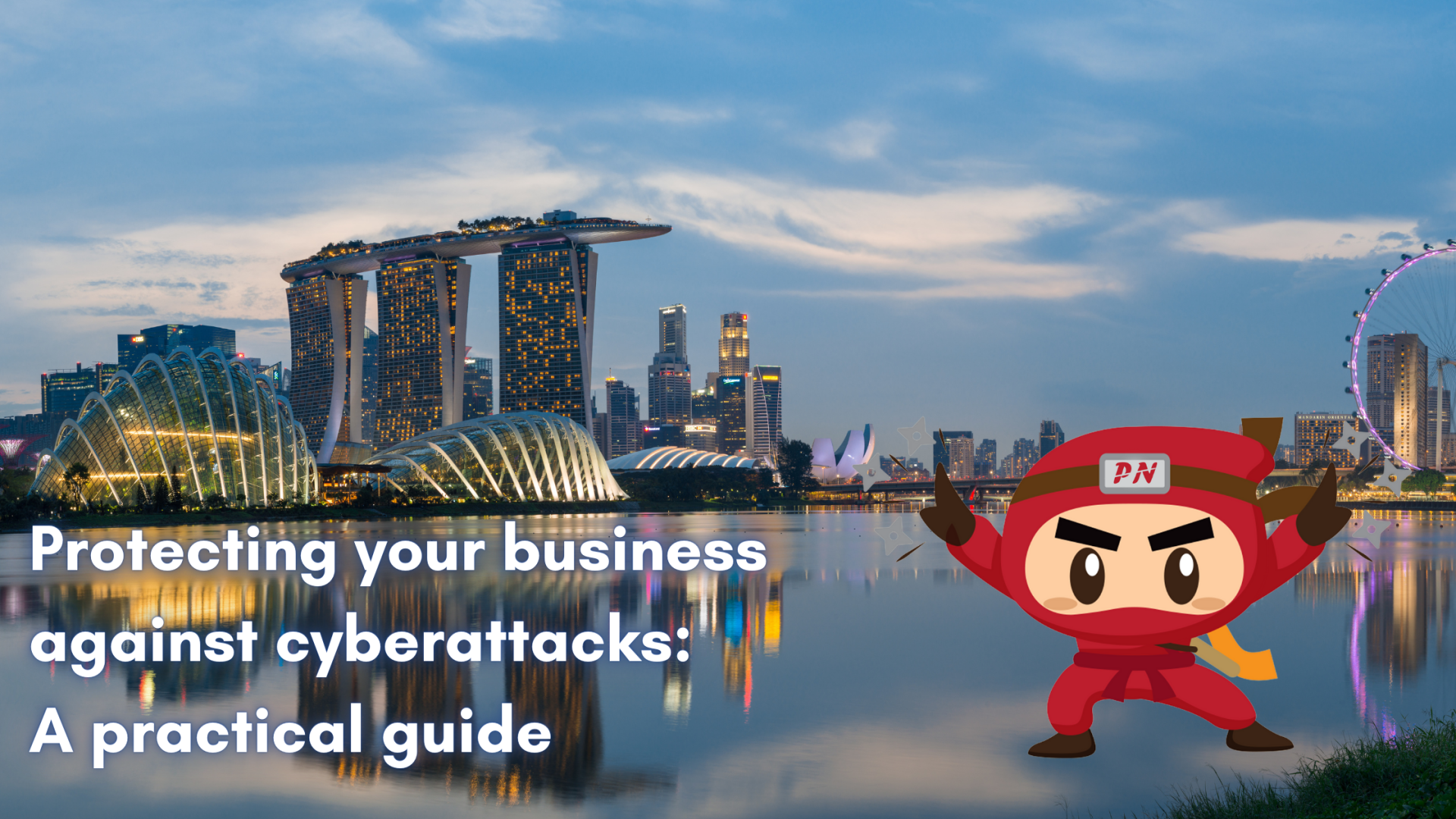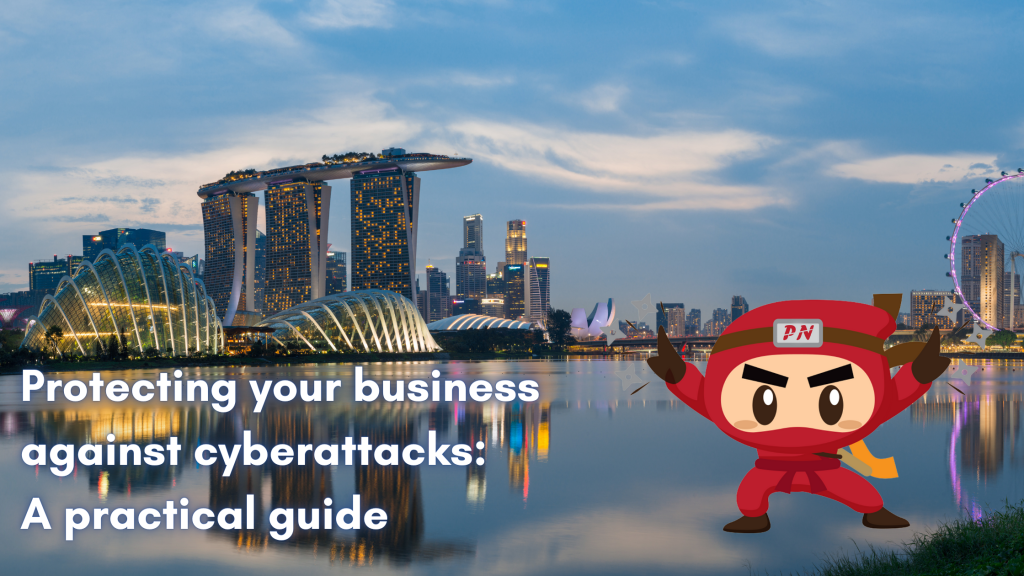KEEP IN TOUCH
Subscribe to our mailing list to get free tips on Data Protection and Cybersecurity updates weekly!







With cybercrime accounting for 43 percent of overall crime in Singapore in 2020, protecting personal data has become a top priority for businesses across industries. From phishing to data breaches and ransomware attacks, individuals, ICT personnel, and companies must remain vigilant and informed on guarding against such crimes.
To help companies stay up to date with potential lurking cyber threats and to equip them with the tools to protect themselves against data breaches, the Personal Data Protection Commission (PDPC) recently released an easy-to-use handbook and checklist. Developed in collaboration with the Cyber Security Agency of Singapore (CSA), the handbook and checklist are a robust reference for companies to keep consumer and business data safe.
Knowing where the problems are is the first step in preventing data breaches. Gaps in ICT system management and operations, after all, can be dangerous and must be closed swiftly. Once your organization’s ICT staff is aware of the difficulties, they can implement new procedures that directly address possible cybersecurity threats.
How to Guard Against Common Types of Data Breaches is a handbook that analyzes the five most common weaknesses in organizational systems that might lead to data breaches, based on past PDPC instances. The manual outlines the issue, presents case examples for each issue and illustrates concrete advice to assist your company in implementing secure practices in its systems and operations.
The most typical ICT gap, according to the manual, is coding challenges. They are frequently made while programming company software, resulting in blunders that might leak sensitive information. If your company is experiencing this problem, the manual can assist you in figuring out how to close the gaps and prevent future data breaches.
Also Read: January 2022 PDPC Incidents and Undertaking

Protecting your business against cyberattacks: 1) Train your staff
Employees are one of the most popular ways for cybercrooks to gain access to your data. They’ll send phishing emails pretending to be from your company, requesting personal information or access to specific files. To the untrained eye, links can appear real, and it’s easy to fall into the trap. This is why employees are needed. It is critical to be aware.
Training your staff on cyber attack prevention and keeping them informed about current cyber assaults is one of the most effective strategies to fight against cyber attacks and all forms of data breaches.
They need to:
Protecting your business against cyberattacks: 2) Keep your software and systems fully up to date
Cyber-attacks frequently occur because your systems or software are out of the current, exposing vulnerabilities. Hackers take advantage of Cybercriminals to exploit these flaws to access your network. Once they’re in, it’s game on. It is frequently too late to take prophylactic measures.
To combat this, it’s a good idea to invest in a patch management system that will manage all software and system updates, ensuring that your system is resilient and up to date.

Protecting your business against cyberattacks: 3) Ensure Endpoint Protection
Endpoint security safeguards networks that are remotely bridged to devices. Mobile devices, tablets, and laptops connected to corporate networks provide entry points for security risks. These paths must be safeguarded with specialized endpoint protection software.
Protecting your business against cyberattacks: 4) Install a Firewall
There are numerous types of sophisticated data breaches, and new ones emerge on a daily basis, sometimes even making a comeback.
Putting your network behind a firewall is one of the most effective strategies to guard against cyber assault. A firewall system will stop any brute force attacks on your network and systems before they can cause any harm, which is something we can assist you with.
Protecting your business against cyberattacks: 5) Backup your data
In the event of a disaster (often a cyber-attack), you must have your data backed up to avoid significant downtime, data loss, and financial damage.
Protecting your business against cyberattacks: 6) Control access to your systems
Believe it or not, one of the attacks on your systems might be physical; thus, having control over who can access your network is critical. Someone can just stroll into your workplace or corporation and insert a USB key with infected data into one of your computers, granting them access to or infecting your entire network.
Controlling who has access to your computers is critical. Installing a perimeter security system is an excellent technique to prevent both cybercrime and break-ins.

Protecting your business against cyberattacks: 7) Wifi Security
In 2020, who doesn’t own a wifi-enabled device? And that is precisely the concern; any device can become infected by connecting to a network. If this infected device subsequently connects to your company network, your entire system is jeopardized.
One of the most secure things you can do for your systems is to secure and hide your wifi networks. Every day, countless devices are being developed that can connect to your network and compromise you.
Protecting your business against cyberattacks: 8) Employee personal accounts
Every employee requires a unique login for each application and program. Several users connecting with the same credentials can jeopardize your company’s security.
Separate logins for each staff member will assist you in reducing the number of attack fronts. Users will only log in once per day and will only use their own logins. You will not only benefit from increased security, but you will also profit from better usability.
Protecting your business against cyberattacks: 9) Access Management
One of the pitfalls of being a business owner with workers is that they may install software on company-owned devices that could jeopardize your systems.
Having managed admin permissions and preventing your personnel from installing or accessing specific files on your network is useful to your security.
Protecting your business against cyberattacks: 10) Passwords
Using the same password for everything can be risky. Once a hacker has figured out your password, they have complete access to your PC and any applications you use.
Having separate passwords configured for each program you use is a significant benefit to your security. Changing them regularly will ensure a high level of protection against external and internal threats.